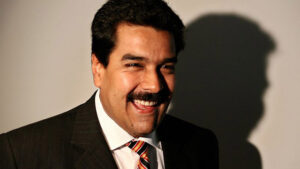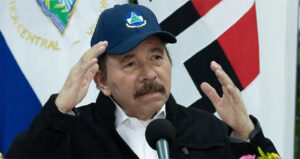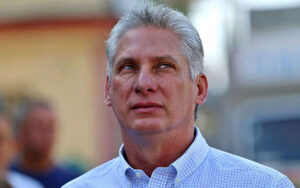
The U.S. has not invited Cuba, Venezuela, or Nicaragua to attend the upcoming Summit of the Americas in Los Angeles, California. Other nations threaten to boycott if every American government is not in attendance. International solidarity limits U.S. efforts to bully and control other countries.
The upcoming Summit of the Americas in Los Angeles is poised to become a diplomatic liability for US President Joe Biden as the Caribbean Community (CARICOM) alliance threatened to boycott the event over efforts by the host nation to exclude Cuba and Venezuela from participating.
“The Summit of the Americas is in danger (…) If the United States insists on not inviting Cuba to this meeting, it will immediately cause 14 CARICOM countries not to attend,” said Antigua and Barbuda’s Ambassador to the US Ronald Sanders last month.
Sanders added that CARICOM members would also boycott should the US as host insist on inviting Venezuelan opposition figure Juan Guaidó in place of democratically elected President

Nicolás Maduro.
In a virtual meeting with US Vice-President Kamala Harris, CARICOM Heads of Government insisted that “all countries” be invited to participate.
The Maduro government enjoys healthy relations with its Caribbean neighbors, which was bolstered by years of financial support by Venezuela through the PetroCaribe alliance that provided sales of oil to members on favorable terms. The program was suspended in 2018 as a result of a steep fall in Venezuela’s crude output but Maduro and Caribbean allies have vowed to resume it.
Earlier this month, US Assistant Secretary for Western Hemisphere Affairs Brian A. Nichols confirmed that President Biden would not extend an invitation to Venezuela, Cuba, and Nicaragua.
After months of quiet diplomatic efforts by regional leaders to pressure Washington to ensure all countries are invited to participate in the Ninth Summit of the Americas in Los Angeles,

Caracas’ allies have begun openly pressuring the Biden government to ensure the gathering is truly representative.
Washington’s decision to exclude certain countries has prompted a strong rebuke from other heads of state, including Mexico’s Andrés Manual López Obrador, who recently visited Cuba and met Cuban President Miguel Díaz-Canel as part of an official visit to the island.
Chatham House, British think tank said that this could spell “the gravestone on U.S. influence in the region.”
Meanwhile, Venezuelan Foreign Minister Felix Plasencia recently traveled to Bolivia where he met with President Lucho Arce. Right-wing organizations in the South American countries have similarly called on the US to exclude Bolivia from the upcoming summit.
Venezuela’s diplomatic engagements in recent weeks likewise included talks with Iran, hosting Oil Minister Javad Owji in Caracas to discuss the bilateral relationship with special emphasis on energy cooperation.
Iran, a major oil producer, and Venezuela, home to the world’s largest proven oil reserves, have both been slapped with sanctions by the White House in recent years. Tehran’s assistance has played an important role in efforts to recover production in the Venezuelan oil industry as well as address fuel shortages.
Owji’s visit to Venezuela came just weeks after a high-level US delegation held talks with President Maduro in Caracas.


